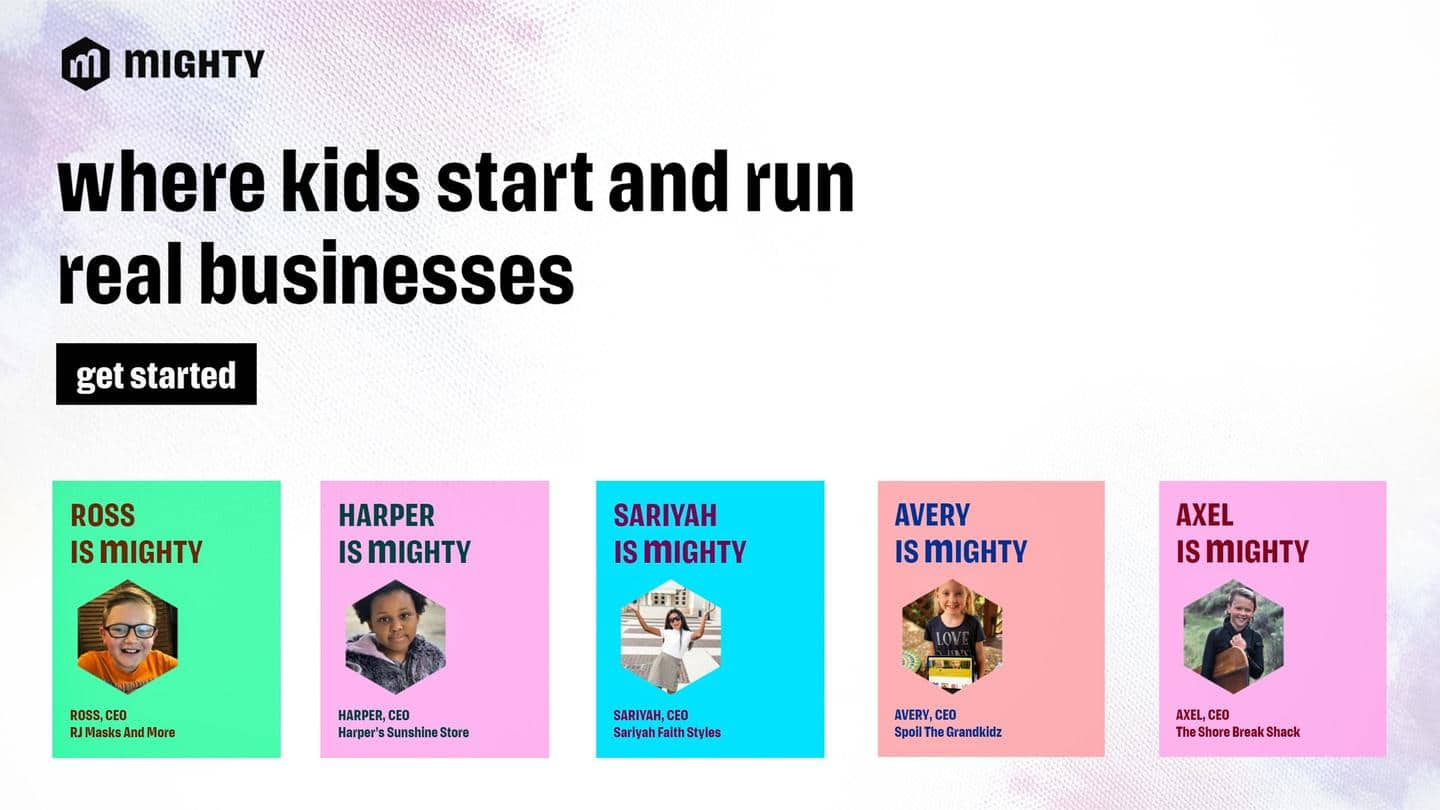
Here's how Mighty is empowering children through e-commerce and entrepreneurship
What's the story
Just when you thought that e-commerce is at its pinnacle, a Los Angeles-based start-up called Mighty is here to take it up a notch.
The platform allows young children to sell products they have conceptualized, minus the "grind" of running a full-on e-commerce storefront independently.
Here's how Mighty's founders help the young CEOs run their "21st-century lemonade stands."
About the founders
Mighty's co-founder wanted to teach his daughters without after-school tutoring
Mighty is the brainchild of GOOD magazine founder Ben Goldhirsh and Dana Mauriello, who spent five years with Etsy and now advises Sidewalk Labs.
It's pitched as the intersection of fintech, ed-tech, and entertainment. Interestingly, it germinated when Goldhirsh's daughters weren't too pleased to be tutored via platforms like Khan Academy after school.
Goldhirsh then encouraged the girls to sell bracelets they made online.
Investor interest
Goldhirsh's solution garnered interest from other parents, friends
The idea worked and Goldhirsh's daughters learned about mathematics, start-up capital, business plans, and marketing. His friends also began showing effort in the "project-based learning effort."
Given that we're witnessing a watershed moment in education where children are spending time online to learn, it's no surprise that the still-in-beta start-up has garnered $6.5 million in seed funding led by Animo Ventures.
Trying something different
3,000 children sell various customizable products on Mighty
The funding isn't a surprise. America's Department of Labor defines the minimum age for employment as 14 years, but most children that age just do menial jobs.
Mighty hosts 3,000 children who sell products on its platform. The children can sell customizable hats, totes, and stickers that are made and shipped to customers by Mighty's current manufacturing partner, Printful.
Collaborative work
Some children don't have the tenacity to sustain a business
Children can also sell items made by global artisans through Mighty's partnership with Novica, a company that has partnered with National Geographic.
However, some users are unhappy they can't sell their own handmade items, but Goldhirsh appears to have a reason. He told TechCrunch that while some children have an entrepreneurial streak, most 11-year-olds don't have the tenacity to sustain a business over time.
Information
Mighty will eventually offer subscriptions, shift to transaction-based revenue
Eventually, Mighty plans to transition to a transaction-based revenue model in addition to offering subscriptions. For now, the start-up has launched an online community where children selling on Mighty can share sales tips and encouragement with each other. Mauriello says children are actively engaging there.
Learning experience
Eventually, children will be able to sell their hand-crafted items
Goldhirsh has plans to let children sell their own items eventually, maybe even services (like lawn care), which the platform doesn't yet support.
The platform remains careful to avoid drawing flak from the children's parents since disappointments and failure are a part of entrepreneurship and not all children can take it in their stride.
Mauriello remains confident that Mighty's experience imparts learning and values.